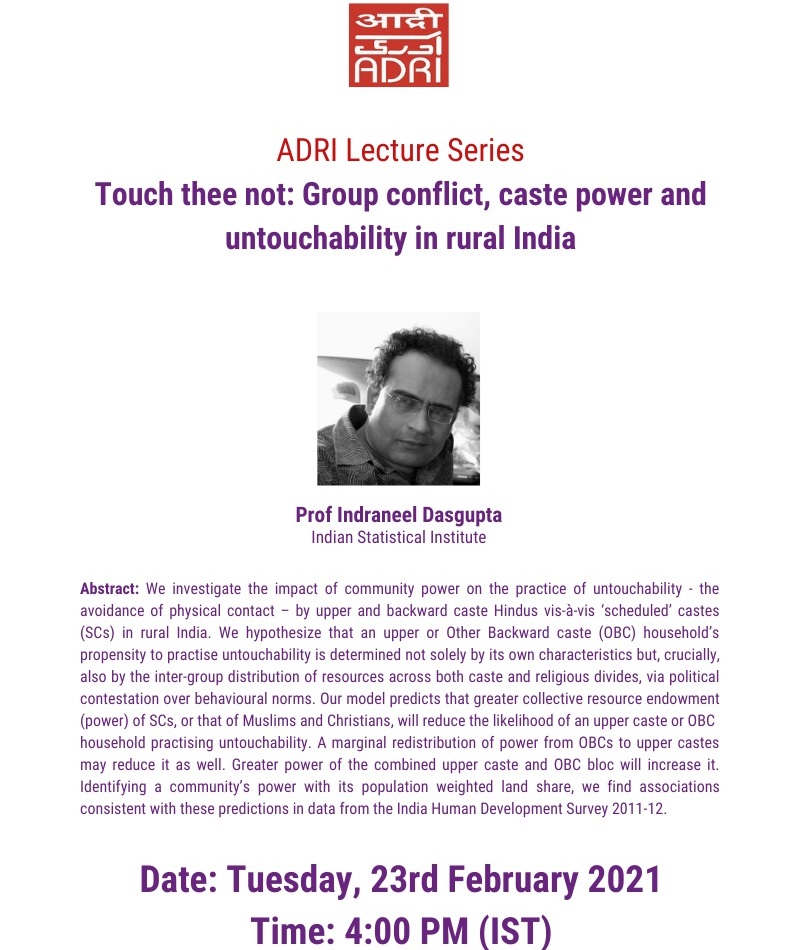Events of ADRI Patna

Speaker : Indraneel Dasgupta, Professor of Economics, Indian Statistical Institute, Calcutta
Title: Touch thee not: Group conflict, caste power and untouchability in rural India
Speaker: Indraneel Dasgupta, Professor of Economics, Indian Statistical Institute, Calcutta
Date and Time: 23rd February 2021 at 16.00 to 17.00 (IST)
Zoom Link Meeting: https://us02web.zoom.us/j/89599055669
Meeting ID: 895 9905 5669
Abstract: We investigate the impact of community power on the practice of untouchability - the avoidance of physical contact – by upper and backward caste Hindus vis-à-vis ‘scheduled’ castes (SCs) in rural India. We hypothesize that an upper or Other Backward caste (OBC) household’s propensity to practise untouchability is determined not solely by its own characteristics but, crucially, also by the inter-group distribution of resources across both caste and religious divides, via political contestation over behavioural norms. Our model predicts that greater collective resource endowment (power) of SCs, or that of Muslims and Christians, will reduce the likelihood of an upper caste or OBC household practising untouchability. A marginal redistribution of power from OBCs to upper castes may reduce it as well. Greater power of the combined upper caste and OBC bloc will increase it. Identifying a community’s power with its population weighted land share, we find associations consistent with these predictions in data from the India Human Development Survey 2011-12.
Patna, 23 February. Professor Indraneel Dasgupta of the Indian Statistical Institute (ISI), Kolkata delivered a lecture on 'Touch thee not: Group conflict, caste power and untouchability in Rural India' via a research webinar organized by the Asian Development Research Institute (ADRI). Professor Dasgupta, along with the co-author of this paper, Sarmistha Pal from the University of Surrey (UK), analysed the relationship between asset ownership and the propensity to practice untouchability. They find that an upper or Other Backward Caste (OBC) household’s propensity to practice untouchability is determined not solely by its own characteristics but, also by the inter-group distribution of resources across both caste and religious divides, via political contestation over behavioural norms. The Professor argued that greater collective resource endowment (power) of SCs, or that of Muslims and Christians, will reduce the likelihood of an upper caste or OBC household practising untouchability. A marginal redistribution of power from OBCs to upper castes may reduce it as well. Greater power of the combined upper caste and OBC bloc will lead to wider practice of untouchability.
The webinar was presided by Dr. Ashmita Gupta, Assistant Professor at ADRI. Over 50 social scientists, including the eminent political economist Barbara Harriss-White, participated in the webinar.